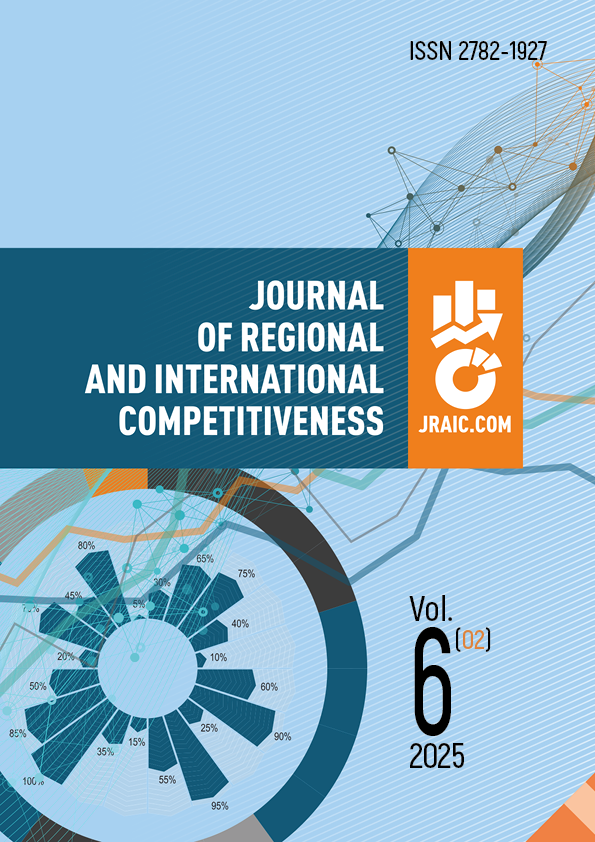Moscow, Russian Federation
In modern conditions, the issue of qualification and legal registration of development is becoming increasingly important. The development projects have long been part of the economic practice. However, the absence of codification in OKVED classifier (Russian Classification of Economic Activities) makes it difficult for it to be effectively supported and regulated by the government. The purpose of this work is to substantiate the need to distinguish development as a separate type of activity, analyse possible changes aimed at regulating investments and project management for Objects of Cultural Heritage (OCH). The research implements the method of scientific dialectics, a systematic approach, the analysis and synthesis of theoretical development and regulatory documents. The article examines the specifics of development, including its complex, project-based nature, and suggests specific formulations for OKVED classifier and urban planning legislation. Therefore, the legalisation of development as a special type of activity stimulates an increase in investment activity, establishes the preconditions for the development of the construction market, and promotes a systematic preservation and adaptation of OCH.
development; Objects of Cultural Heritage; OKVED; investments; development activities; urban planning legislation; economic development
1. Mazur, I. I. (2010). Real estate development: a textbook. Moscow: Izdatel’stvo “Elima: Omega-L” (in Russian).
2. Ukradyzhenko, M. S. (2010). Methodological issues of development research. Izvestiya SPbGEU, (2) (in Russian).
3. Kazakov, A. A. (2008). Real estate development and its role in economic development. Vestnik Udmurtskogo universiteta, (2), 47-52 (in Russian).
4. Goranova, O. A., & Korendyaseva E. V. (2020). Development of green areas of the city: criteria and methodology for assessing the effectiveness of development. Modern megapolis: the green economy of a smart city: Sovremennyj megapolis: zelenaya ekonomika umnogo goroda. Materialy III mezhdunarodnoj nauchno-prakticheskoj konferencii, Moscow, 19 noyabrya 2019 goda. Moscow: Moskovskij gorodskoj uni-versitet upravleniya pri Pravitel’stve Moskvy (in Russian).
5. Antokhina, Yu. A., & Kornilova S. V. (2020). Development as a concept of effective in-vestment in conditions of change. Vestnik Tihookeanskogo gosudarstvennogo universiteta, 1(56), 3-58 (in Russian).
6. Fedorkina, M. S., & Fedorkina A. S. (2018). Real estate development and development activity: content and features. Nauchnyj vestnik: finansy, banki, investicii, 2(43), 181-187 (in Russian).
7. Mayorov, M. V. (2020). Land development is a tool for the development of the con-struction industry and the country’s economy as a whole. Dnevnik nauki, 11(47), 39 (in Russian).
8. Zhamkov, M. V. (2023). The concept of development in the Russian legal system. Voprosy rossijskojy ustici, (28), 228-237 (in Russian).
9. Asaul, A. N. (2013). Economics of real estate: a textbook for universities. St. Petersburg: Peter (in Russian).
10. Bukharin, N. A., Ozerov, E. S., Pupentsova, S. V., & Shabrova, O. A. (2011). Business value assessment and management. St. Petersburg: EM-NiT (in Russian).
11. Goremykin, V. A. Real Estate Economics. (2011). Moscow: Yurajt (in Russian).
12. Kruglova, N. Yu. (2013). Fundamentals of business (entrepreneurship). Moscow: KNORUS (in Russian).
13. Mazur, I. I., Shapiro, V. D., & Olderogge, O. G. (2004). Development. Moscow: Ekonomika Publ. (in Russian).
14. Kasyanenko, T. G., Makhovikova, G. A., Esipov, V. E., & Mirzazhanov, S. K. (2010). Real estate valuation. Moscow: KNORUS (in Russian).
15. Peizer, R. B., & Frey, A. B. (2004). Professional real estate development. ULI’s Guide to Doing business. Moscow: Izdatel’stvo po gorodskomu razvitiyu (UDP) (in Russian).
16. Shabalin, V. G. (2016). Real estate transactions. The realtor’s textbook. Part 1: (General) preparation and execution of the transaction. Moscow: Omega–L. (in Russian).
17. Ivanov, I. I. (2018). Investments in cultural heritage sites: problems and prospects. Kul’tura i stroitel’stvo, (4), 45-58 (in Russian).
18. Petrov, P. P. 2019. Legal regulation of real estate development in Russia. Ekonomika nedvizhimosti, (2), 60-75 (in Russian).
19. Sidorov, S. S. (2020). Restoration and adaptation of cultural heritage sites in the conditions of modern urbanization. Kultura i urbanistika, (3), 82-95 (in Russian).
20. Novikov, N. N. (2021). Economic efficiency of development projects in the field of cultural heritage objects. Investicii i razvitie, (1), 34-50 (in Russian).
21. Solovyov, A. I. (2018). Legal support of urban planning activities: problems and ways of improvement. Gradostroitelstvo i ekonomika, (5), 112-125 (in Russian).
22. Melnikova, E. V. (2019). Development as a factor of urban environment renewal. Sovremennie problemi upravleniya, (7), 89-102 (in Russian).
23. Kovalev, S. P. (2020). Investment mechanisms in the restoration of cultural heritage sites. Vestnik arhitektury i stroitel’stva, (3), 53-67 (in Russian).
24. Fedorova, L. A. (2021). Features of the legal regulation of development activities. Pravo i ekonomika, (6), 74-88 (in Russian).
25. Chernysheva, N. V. (2022). Modern trends in the development of OKVED classifier and their impact on the investment attractiveness of the real estate market. Finansi i statistika, (2), 37-51. (in Russian).




















